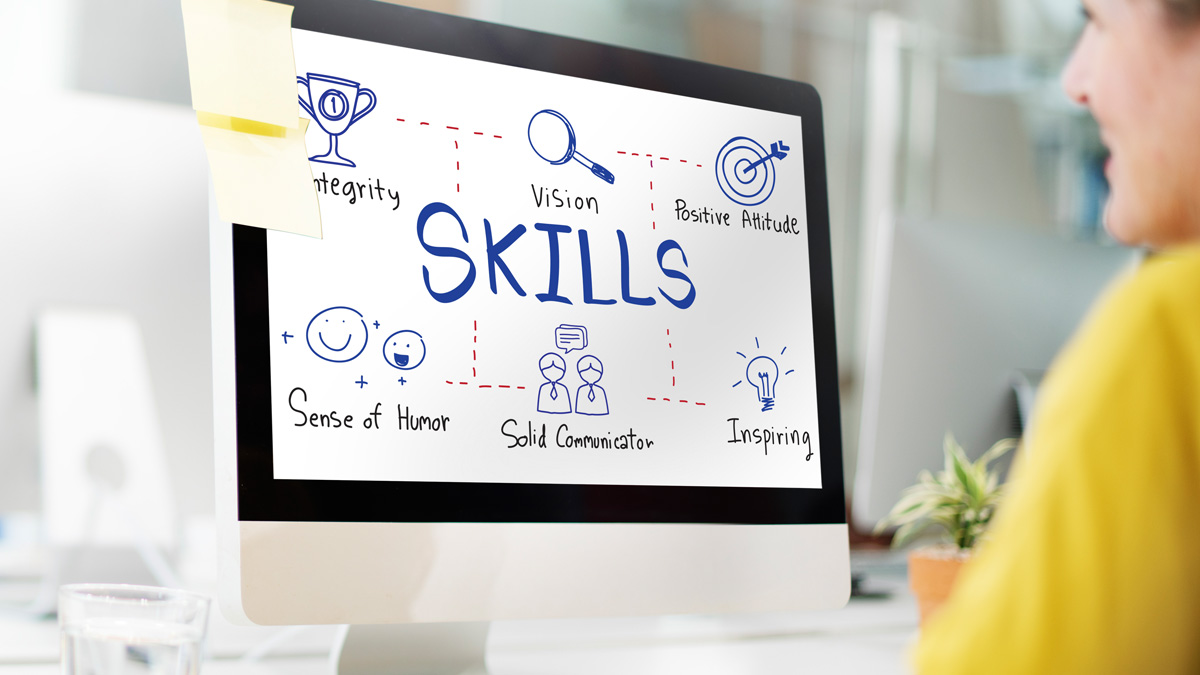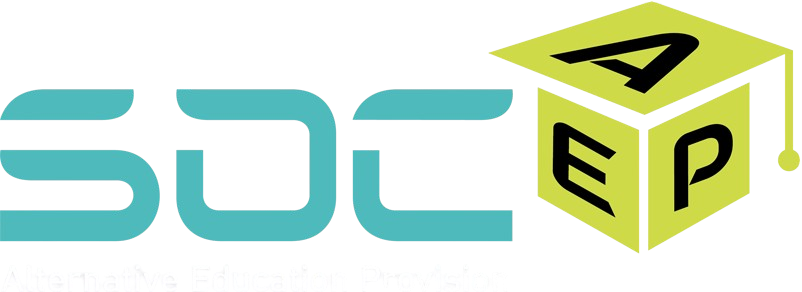Introduction
Technical expertise is insufficient in today’s quickly changing world, where AI, automation, and hybrid workforces redefine the labour market. Employers desire people who are adaptive, emotionally knowledgeable, and who communicate well. This is when soft skills come into play.
According to a recent LinkedIn Global Talent Trends research, 89% of recruiters believe that a lack of soft skills is the most common reason for an employee’s failure to succeed. These essential skills may set you apart, whether you’re a student, job seeker, or professional looking to succeed in 2026 and beyond.
So, what are soft talents, and which ones will set you apart this year? Let’s look at the top ten soft skills you should cultivate, as well as specific ideas to help you improve them right now.
What are Soft Skills?
Soft talents are personal characteristics, personality traits, and communication qualities that allow you to communicate effectively with others. Unlike technical talents (such as coding or data analysis), soft skills are difficult to quantify but are just as vital, if not more, in most occupations.
They include emotional intelligence, flexibility, critical thinking, and other skills necessary for teamwork, leadership, and problem solving in today’s settings.
10 Soft Skills That Will Make You Stand Out in 2026
1. Emotional intelligence (EQ)
Why it matters: Emotional intelligence (EQ) is the ability to comprehend, manage, and express your emotions, as well as respond to the emotions of others with empathy. In collaborative settings, this is invaluable.
Quick statistic: According to Harvard Business Review, 90% of great achievers possess high levels of emotional intelligence.
How to Improve It: Practice active listening, keep a journal to reflect on your emotions, and get feedback on how you deal with emotions in different situations.
2. Communication Skills
Why this matters: Whether you’re giving a presentation, composing an email, or leading a meeting, clear and confident communication is essential for success.
How to enhance it: Join public speaking clubs, write more frequently, and practise offering and taking constructive feedback. Use resources like Grammarly or Toastmasters to improve your style.
3. Adaptability
Why this matters: In 2025’s ever-changing landscape, your ability to pivot and adapt to new tools, teams, and trends will distinguish you.
How to Improve It: Embrace change by learning something new every week. Try working outside of your comfort zone by volunteering for alternative positions or using unfamiliar technology platforms.
4. Critical thinking
Why it matters: Employers respect people who can assess data, think independently, and solve problems efficiently.
How to Improve It: Critical thinking can be improved by ask questions, challenge assumptions, and analyse the benefits and drawbacks before making a decision. Take online logic or philosophy classes to improve your analytical skills.
5. Collaboration & Teamwork
Why this matters: Remote and hybrid teams are the new normal. Working well with others, even electronically, is a skill unto itself.
How to Improve It: Work on collaborative projects, learn how to settle conflicts, and value varied perspectives. Tools such as Trello and Slack might help you improve your collaboration skills.
6. Time Management
Why it matters: As deadlines tighten, effective time management is critical for productivity and mental health.
Quick statistic: According to a McKinsey study, efficient time managers are 25% more productive than their counterparts.
How to Improve It: Use time management tools such as Notion or Pomodoro Timer. Use the Eisenhower Matrix to break down tasks and prioritise them.
7. Growth Mindset
Why this matters: Believing that you can acquire new skills through hard work and learning allows you to prosper in ever-changing sectors.
How to Improve It: Replace the phrase “I can’t” with “I can’t yet.” Seek out learning opportunities like short courses or feedback sessions. Consider mistakes to be valuable learning experiences.
8. Leadership skills
Why this matters: Being a leader does not require a title. Standout characteristics include taking the initiative, inspiring others, and making decisions.
How to Improve It: Volunteer to lead a small group, mentor juniors, or recommend changes at school or work. Learn from the leaders you admire.
Also Read – 7 Powerful Ways to Build Self-Discipline for Success
9. Resilience
Why it matters: Setbacks are unavoidable. Resilience allows you to recover from setbacks and maintain your mental health.
How to Improve It: Develop coping methods, including mindfulness, journaling, and frequent exercise. Reflect on previous challenges and how you overcame them.
10. Digital Etiquette and Remote Collaboration
Why this matters: Knowing how to speak properly in digital settings will become increasingly important as remote work becomes more prevalent.
How to Improve It: Maintain punctuality in virtual meetings, keep a respectful tone in chats, and grasp video conference protocol. Acquaint yourself with tools such as Zoom, Microsoft Teams, and Google Meet.
How the Alternative Education Programme Helps You Master Soft Skills
The Alternative Education Programme focuses not just on academic performance, but also on overall student development. Our approach includes project-based learning, which promotes communication, teamwork, and problem-solving skills through hands-on projects.
Mentoring and coaching: Regular one-on-one sessions to boost confidence, emotional intelligence, and adaptability.
Career-Focused Workshops: Discover fundamental office etiquette, time management, and leadership techniques.
Real-World Experience: Work experience, community service, and guest speakers can help enhance resilience and teamwork.
Lifeskills: We do more than just teach; we prepare you for life.
Final Thoughts
While qualifications unlock doors, soft skills keep them open—and may even lead to greater opportunities. As we go deeper into a world dominated by technology and creativity, those with empathy, adaptability, and emotional intelligence will emerge as leaders.
Whether you’re a student, parent, instructor, or employer, the time to invest in soft skills is now. Begin small, practise regularly, and see your confidence and prospects improve.
At the School of Coding & AI, we believe that everyone deserves an opportunity to flourish, and acquiring the above-mentioned ten soft skills is the first step.
Frequently Asked Questions
Because technology is automating many technical activities, soft talents provide humans an advantage. Empathy, adaptability, and human judgement are qualities that AI cannot mimic.
Yes! According to a recent Deloitte research, two-thirds of all employment would require soft skills by 2030. The future belongs to those who can combine technical and interpersonal skills.
Absolutely. Soft skills, like coding and maths, may be acquired via intention, practice, and feedback.
Provide real-life instances. Instead of simply mentioning “teamwork,” write: “Worked with a cross-functional team to complete a group project three weeks early.”
Because they influence how people connect, communicate, and work together, soft skills are crucial. Soft skills apply to all businesses and professions, in contrast to technical skills, which are job-specific and quantifiable. They enable people to settle disputes, forge solid bonds with one another, and adjust to shifting surroundings. Employers will prioritise individuals who exhibit emotional intelligence, adaptability, and teamwork in addition to technical skill in 2026 as workplaces grow more technologically advanced and global. These characteristics frequently distinguish genuine leaders from mediocre workers.
Soft talents can make your resume stand out from those of other applicants with comparable qualifications. Depending on the position, the most effective soft skills to emphasise are as follows:
- Communication: The capacity to convey concepts understandably and efficiently.
- Solving problems: Taking a creative and resilient approach to difficulties.
- Teamwork: Effectively working together with coworkers to accomplish common objectives.
- Adaptability: The capacity to remain adaptable and thrive in rapidly evolving environments.
- Leadership: This is the ability to uplift and encourage people without having official authority.
- Emotional Intelligence: The ability to comprehend and control your own emotions as well as those of others is known as emotional intelligence.
It’s ideal to bolster soft talents on your resume using examples from projects, jobs, or studies. This proves that you have actually applied the skill, not merely claimed it.
The glue that keeps teams together and propels an organization’s success is soft skills. Collaboration is made easier in a workplace with a wide range of personalities and viewpoints because to abilities like empathy, communication, and flexibility. They also assist professionals in navigating challenging circumstances, such as managing client complaints or settling disputes within the team. An employee with exceptional soft skills may impact culture, increase productivity, and foster innovation. Employers are realising that technical expertise alone is insufficient. Actually, studies reveal that companies with a strong soft-skill culture tend to have lower staff turnover and more employee engagement.
Here’s a list of the most commonly recognised soft skills that employers seek:
- Communication
- Teamwork and collaboration
- Problem-solving
- Adaptability and flexibility
- Critical thinking
- Leadership
- Time management
- Emotional intelligence
- Creativity and innovation
- Conflict resolution
This list isn’t exhaustive, but it represents the skills most in demand across industries in 2025.
The term “soft skills” describes the character traits, actions, and interpersonal skills that influence how well a person collaborates with others and manages obstacles in the workplace. They have more to do with personality, attitude, and social awareness than they do with technical expertise. Soft talents include things like listening well, time management, and maintaining composure under duress. Soft skills are acquired over time from practice, reflection, and experience, in contrast to hard skills, which are frequently learnt through training.







